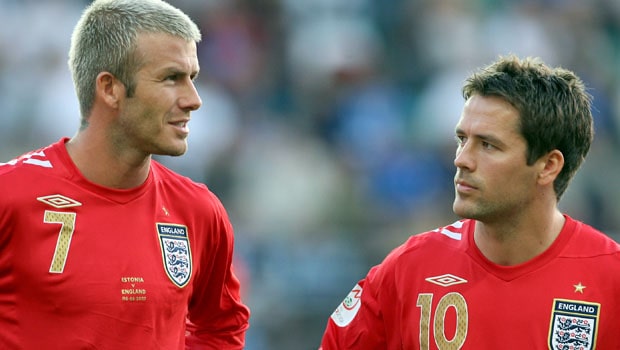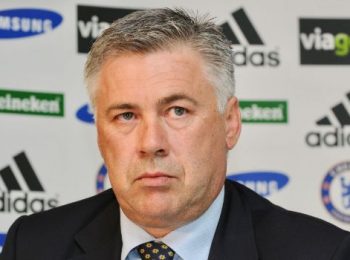In the annals of football history, moments of glory and heartbreak often intertwine, leaving indelible marks on players and fans alike. One such instance is etched in the memory of Michael Owen, who, decades later, still harbors resentment over a critical episode involving his England teammate, David Beckham, during the 1998 World Cup.
The scene was set in the knockout stage against Argentina, a match pulsating with tension. England found themselves level at 2-2 when Beckham, then hailed as ‘Golden Balls,’ succumbed to a moment of madness. A heated clash with Diego Simeone prompted Beckham to retaliate with a kick, an action witnessed by referee Kim Milton Nielsen, who promptly brandished a red card. The incident proved pivotal, and England ultimately bowed out in a penalty shootout, losing 4-3.
Owen, who had electrified the world with a stunning goal earlier in the match, remains haunted by the events of that fateful day. In a recent interview on Simon Jordan’s Up Front show, Owen candidly admitted that the resentment still lingers, stemming from the belief that Beckham’s mistake significantly contributed to England’s premature exit from the World Cup.
When questioned about the term “resentment,” Owen clarified that it wasn’t directed at Beckham personally but rather at the consequence of his actions. The former striker asserted that Beckham’s ill-fated decision to retaliate had repercussions that echoed beyond the match, impacting the team’s trajectory in the tournament.
In Owen’s view, reaching the pinnacle of football is an arduous journey, and the World Cup provides only a limited number of opportunities. Beckham’s lapse in judgment, a “childish” and “irresponsible” mistake, as described by Owen, became a source of frustration. The striker acknowledged the butterfly effect of such errors, especially when representing a nation on the grand stage.
The interview delved into Owen’s reflections on the “what-ifs” that haunt him, with the striker contemplating how a full-strength England could have altered the course of that encounter against Argentina. The regret was palpable as he mused about the self-inflicted wounds that have plagued England’s tournament history, referencing incidents like Wayne Rooney’s red card for stamping on Ricardo Carvalho.
Owen’s sentiments encapsulate the anguish of a generation of players who, despite possessing exceptional talent, grapple with the torment of missed opportunities on the international stage. The 1998 World Cup, with its highs and lows, remains a poignant chapter in Owen’s career, a tale of brilliance overshadowed by an ill-timed lapse that altered the course of football history.


























